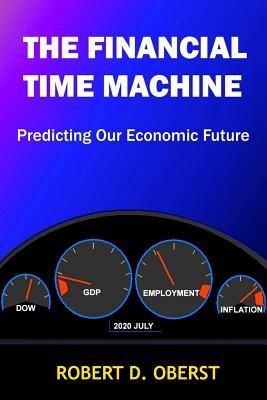
- We will send in 10–14 business days.
- Author: Robert D Oberst
- Publisher: CreateSpace Independent Publishing Platform
- Year: 2013
- Pages: 300
- ISBN-10: 1490594981
- ISBN-13: 9781490594989
- Format: 15.2 x 22.9 x 1.6 cm, softcover
- Language: English
- SAVE -10% with code: EXTRA
Reviews
Description
When we have a large generation at its financial peak, as we had recently with the War Boom Baby generation (Boomers), we will have a long-term economic expansion. Conversely, as that generation starts to downsize, we will have a long-term contraction. These generational ebbs and flows set a series of waves that pass over the economy representing a tremendous financial force, the magnitude of which financial advisers and the media underestimate. The Boomers were the largest generation in the history of the United States, for which the book's model predicted our longest expansion lasting 25 years from 1983 through 2007. During this period, the Boomers injected an unprecedented amount of economic stimulus into the economy. Granted there were a couple of recessions, but these were relatively mild and the period from 1991 until 2001 was the longest without a recession in U.S. history. There were numerous reasons for the Great Recession, but at its core was the fact that this, the largest generation was starting to downsize and withdraw their record level of generational economic stimulus from the economy. They were buying less, particularly fewer, larger homes, thereby bursting the housing bubble that precipitated the Great Recession. These generational waves do not directly cause a serious recession or depression, but rather set the stage upon which the financial actors perform according to the script of their time. [Take a journey upon the time machine at YouTube and see what it forecasts at youtube.com/watch?v=oqVXU_CXaRM - All aboard!] If this theory is true, it should also apply to other peak generations such as the Boomer generation that followed the Civil War and the Greatest generation who won World War II. It turns out that these generations also spawned record breaking, long-term expansions. And, when they started to retire, we had the Great Depression in the 1930s and the 1970's malaise with four recessions in a mere 13 years. Thus far, the model has correctly predicted the course of the U.S. economy since 2001, and more importantly likely predicts our economic future. Interestingly, the time machine's principles also apply to many of the world's leading economies including China, Japan, Germany, France, the U.K, and Italy.
EXTRA 10 % discount with code: EXTRA
The promotion ends in 19d.22:17:12
The discount code is valid when purchasing from 10 €. Discounts do not stack.
- Author: Robert D Oberst
- Publisher: CreateSpace Independent Publishing Platform
- Year: 2013
- Pages: 300
- ISBN-10: 1490594981
- ISBN-13: 9781490594989
- Format: 15.2 x 22.9 x 1.6 cm, softcover
- Language: English English
When we have a large generation at its financial peak, as we had recently with the War Boom Baby generation (Boomers), we will have a long-term economic expansion. Conversely, as that generation starts to downsize, we will have a long-term contraction. These generational ebbs and flows set a series of waves that pass over the economy representing a tremendous financial force, the magnitude of which financial advisers and the media underestimate. The Boomers were the largest generation in the history of the United States, for which the book's model predicted our longest expansion lasting 25 years from 1983 through 2007. During this period, the Boomers injected an unprecedented amount of economic stimulus into the economy. Granted there were a couple of recessions, but these were relatively mild and the period from 1991 until 2001 was the longest without a recession in U.S. history. There were numerous reasons for the Great Recession, but at its core was the fact that this, the largest generation was starting to downsize and withdraw their record level of generational economic stimulus from the economy. They were buying less, particularly fewer, larger homes, thereby bursting the housing bubble that precipitated the Great Recession. These generational waves do not directly cause a serious recession or depression, but rather set the stage upon which the financial actors perform according to the script of their time. [Take a journey upon the time machine at YouTube and see what it forecasts at youtube.com/watch?v=oqVXU_CXaRM - All aboard!] If this theory is true, it should also apply to other peak generations such as the Boomer generation that followed the Civil War and the Greatest generation who won World War II. It turns out that these generations also spawned record breaking, long-term expansions. And, when they started to retire, we had the Great Depression in the 1930s and the 1970's malaise with four recessions in a mere 13 years. Thus far, the model has correctly predicted the course of the U.S. economy since 2001, and more importantly likely predicts our economic future. Interestingly, the time machine's principles also apply to many of the world's leading economies including China, Japan, Germany, France, the U.K, and Italy.


Reviews